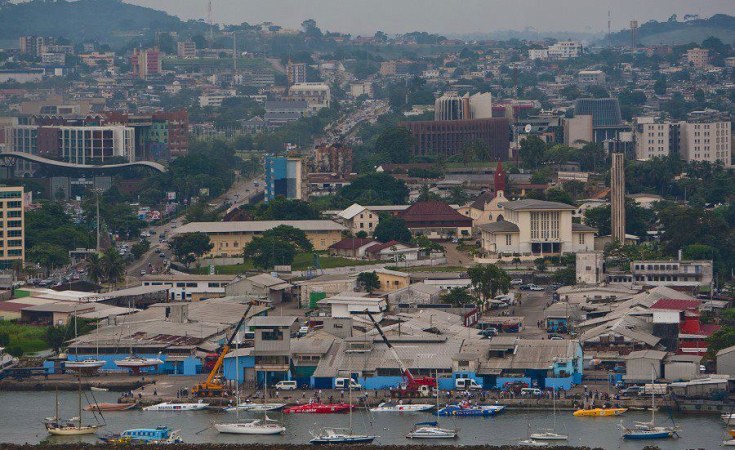Gabon's new ruler General Brice Oligui Nguema has appointed former opposition leaders and key figures from the ousted regime to both houses of parliament, as the military junta sets a two-year transition period to democracy and military cooperation with France resumes.
General Oligui, who was proclaimed president for a transition period on 4 September, led a bloodless coup d'etat against President Ali Bongo Ondimba at the end of August after he was declared winner of a presidential election which the army and opposition denounced as fraudulent
The Bongo family have family have ruled the country for 55 years with an iron fist, with political observers having cited the dynasty's hold on power as a kleptocracy.
Following last week's inauguration, Oligui promised to hand the country back to civilian rule with elections after a transitional period, without setting a precise date.
He has, however, set up a broad transitional government under newly appointed prime minister Raymond Ndong Sima, a Paris-educated economist who served as head of government for Bongo from 2012 to 2014 before running against him in the 2016 and 2023 presidential campaigns.
#Gabon 🇬🇦 #société : la composition du #gouvernement de la #transition du pays est connue, réaction des #populations.#Gabon24 pic.twitter.com/laXUOP9Qdi-- Gabon24 (@tvgabon24) September 12, 2023
Broad spectrum of Gabon's political players
The new Senate will be led by Paulette Missambo, one of Bongo's leading rivals during the election and head of the National Union party.
Jean-Francois Ndongou, who held numerous ministerial posts under the Bongo family's decades in power, will be speaker of the transitional National Assembly.
Four vice-presidents - army officers, politicians who opposed and supported Bongo as well as civil society figures - were named for each house.
The military leader is also expected to appoint 70 members of the assembly and 50 of the senate.
This comes as the new government the prime minister announced on Saturday also includes military figures and ex-ministers who served under the ousted president, but none of the main opposition figures.
General Oligui has also promised a new constitution, to be adopted by referendum, and a new electoral code.
On the subject of democratic transition, prime minister Ndong Sima said in an interview on Sunday, "We have the desire to see the [military rule] process come to an end in 24 months so we can go back to elections," adding "that period could end up being slightly longer or shorter."
Regarding the constiution and electoral code, Ndong Sima said those drawing up the new texts for the country "will discuss this aspect of things, that is to say the duration [of the transition] and who is really allowed to stand [for election] and not to stand.
"It would not however be good for the military to stand, so they can be impartial and objective arbiters of the elections," he said.
🇬🇦#Gabon, Le président de la Transition @BriceOligui a désigné le 11 septembre 2023, les membres du parlement de la transition. La présidente de l'Union nationale et ancienne candidate à l'élection présidentielle Paulette Missambo a été nommée présidente du Sénat, tandis que... pic.twitter.com/vs1potbmYx-- #AFRICA24 (@AFRICA24TV) September 12, 2023
French military cooperation resumes in Gabon
Meanwhile, training and cooperation activities carried out by the French military in Central Africa are gradually being resumed "on a case-by-case basis," according to an announcement from the French Ministry of Defence on Monday.
France has nearly 400 military personnel pre-positioned in Gabon, who cooperate with the national armies or those of neighbouring countries for exercises or training, help protect French nationals and are ready to provide back-up for operations.
In the wake of Gabon's 30 August coup d'état, their activities were suspended.
At the time of the putsch, French Minister for the Armed Forces, Sébastien Lecornu made a succint differentiation between the coup in Gabon and the one in Niger on 26 July.
"France condemns all coups ... However, we cannot equate the situation in Niger, where illegitimate soldiers deposed a legitimately elected president, with that in Gabon, where the motive put forward by the military is precisely the failure to comply with electoral law and the Constitution.
"In fact, and I am weighing my words carefully, there are doubts about the sincerity of the elections in this country," Lecornu stressed.


